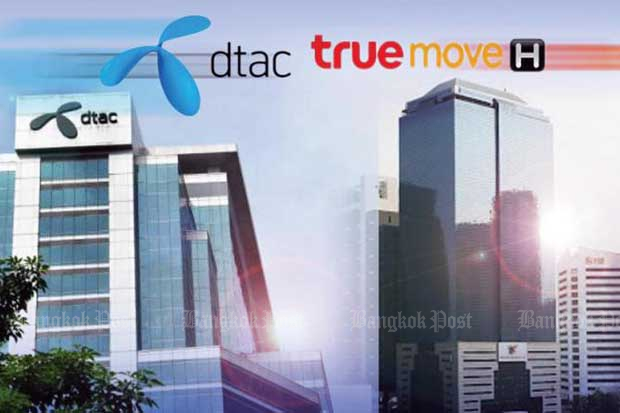
The National Broadcasting and Telecommunications Commission (NBTC) has no authority to approve or reject the merger of True Corporation and Total Access Communication (DTAC), but it can only prescribe measures to govern the deal, according to the Council of State.
The legal view is perceived to deliver a strong positive sentiment for the planned amalgamation of the two major telecom firms. The NBTC earlier requested the Council of State to provide a legal interpretation on approaches to govern the deal.
Trairat Viriyasirikul, acting secretary-general of the NBTC, said the legal opinion was sent to the telecom regulator on Tuesday and has been forwarded to the NBTC board chairman (Dr Sarana Boonbaichaiyapruck) for further consideration.
According to the council's interpretation, the merger procedure must follow through on the NBTC’s notification on measures to regulate mergers in the telecoms business in 2018, stating that those wishing to merge only need to notify the regulator.
The 2018 regulation repealed and replaced the 2010 regulation created by the National Telecommunications Commission (NTC), that required merger deals to be approved by the regulator.
The NTC was the country’s telecom regulatory body prior to the establishment of the NBTC.
The Council of State indicated the merging parties are only obliged to make a report on the merger and send to the NBTC and the move is in line with Section 77(3) of the Constitution, in which the state must use a permission system only in the necessary cases.
It also pointed out the NBTC can prescribe specific measures to protect public interest in line with the 2018 regulation.
The Council of State noted the NBTC must use its power by finding balance between consumer protection and the progress of telecoms business sector, said Mr Trairat.
It remains unclear how the NBTC board will make a decision on ways to govern the deal, following the legal viewpoints deliberated by the government’s legal arm.
In November last year, True and DTAC announced an amalgamation plan to establish a new firm to move into advanced technology.
The planned merger has drawn criticism from academics and consumer advocates who believe the move would drive down the industry's competition, with consumers paying the price.







